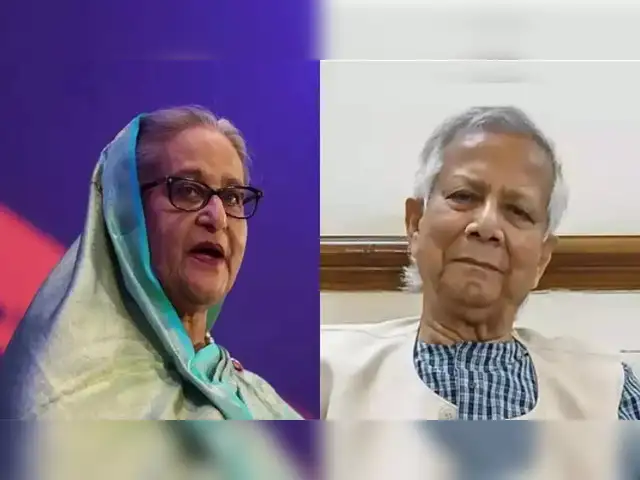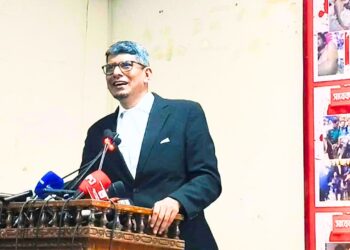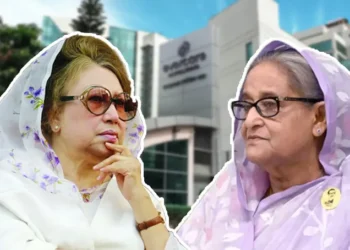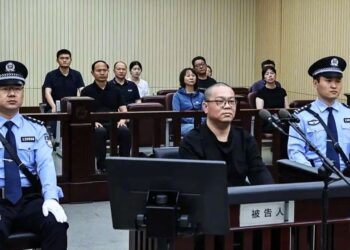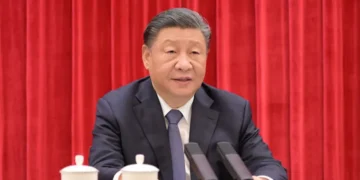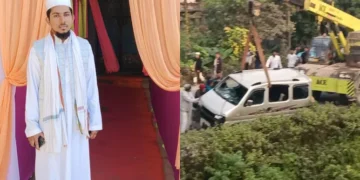Key Highlights
- Six international human rights organizations have jointly urged Bangladesh’s Interim Government to lift the ban on Awami League activities.
- The letter, addressed to Chief Adviser Dr. Muhammad Yunus, calls for justice in cases of enforced disappearances and killings.
- Groups commend initial reform efforts but express concern over security sector accountability and press freedom.
- They demand reforms of the RAB, DGFI, NHRC, and review of several restrictive laws including the Cyber Security Ordinance 2025.
- The organizations urge the government to protect Rohingya refugees from forced repatriation and cooperate with the International Criminal Court (ICC).
- They recommend ensuring press freedom, stopping politically motivated arrests, and strengthening democratic institutions ahead of the 2026 elections.
Human Rights Organizations Call for Accountability and Reform
Six prominent international human rights organizations CIVICUS, Committee to Protect Journalists (CPJ), Fortify Rights, Human Rights Watch (HRW), Robert F. Kennedy Human Rights, and Tech Global Institute have sent a formal letter to Bangladesh’s Chief Adviser Professor Dr. Muhammad Yunus.
They urged the interim government to ensure justice in cases of enforced disappearances and killings and to lift the ban on Awami League activities. The letter emphasizes the need to advance human rights reforms and prevent further violations under the current administration.
Commendation for Initial Efforts
The organizations commended the interim government for its early initiatives including steps to restore basic freedoms, reform laws, and investigate past abuses following the end of Sheikh Hasina’s Awami League government.
However, they expressed concern over the lack of progress in security sector reforms and accountability, urging stronger institutional frameworks ahead of the 2026 national elections. The letter also stressed halting arbitrary arrests and politically motivated cases against Awami League members.
Read more: Barsha and Mahir Planned the Murder of JnU Student Zubayed
Addressing Past Abuses and Ensuring Justice
The letter calls on the government to hold perpetrators accountable for serious abuses committed during the July Revolution and over the past fifteen years, including enforced disappearances, extrajudicial killings, and torture.
It notes that Bangladesh’s International Crimes Tribunal (ICT) has charged several active and former military officers from the Rapid Action Battalion (RAB) and Directorate General of Forces Intelligence (DGFI) with crimes against humanity.
The groups emphasized that the military must fully cooperate with the ICT and that the interim government should provide the legal framework, resources, and independence necessary for fair trials. They also recommended declaring a moratorium on the death penalty, including for ICT cases.
Security Sector Reform Demands
The letter strongly calls for security sector reform, including:
- Disbanding the Rapid Action Battalion (RAB) due to its history of impunity and human rights violations.
- Limiting DGFI’s powers to strictly military intelligence roles with clear legal mandates.
- Developing rights-respecting institutions to ensure accountability and end state abuses.
Criminalizing Enforced Disappearances
The organizations urged the government to criminalize enforced disappearances in line with international standards and adopt the Enforced Disappearance Prevention and Redress Ordinance after ensuring compliance with the International Convention for the Protection of All Persons from Enforced Disappearance.
They also called for removing the death penalty from the draft and ensuring that the Commission of Inquiry on Enforced Disappearances receives adequate time and resources to fulfill its mandate.
Reforming the National Human Rights Commission
Reform of the National Human Rights Commission (NHRC) in accordance with the Paris Principles was another major demand. The groups urged the government to ensure:
- Full independence from political influence,
- Authority to investigate abuses by security forces,
- Financial and administrative autonomy,
- Compliance with international human rights standards.
Legal and Digital Rights Reforms
The letter called for a review of laws that restrict freedoms, including:
- Cyber Security Ordinance 2025
- Anti-Terrorism Act
- Special Powers Act
- Official Secrets Act
Criminal defamation provisions under the Penal Code
Although the Cyber Security Act 2023 was repealed, its replacement still contains ambiguous and overbroad terms, posing risks of state overreach.
The organizations also highlighted concerns about the draft Personal Data Protection Ordinance and draft National Data Management Ordinance, urging the government to prevent misuse and surveillance and ensure data privacy protections.
Press Freedom and Political Rights
The letter emphasized that press freedom and freedom of expression must be safeguarded.
The interim government was urged to:
- Prevent arbitrary arrests of journalists,
- Protect them from harassment and violence,
- Implement Media Reform Commission recommendations aligned with international standards.
Furthermore, the groups demanded the withdrawal of politically motivated cases, especially those targeting Awami League members and supporters, and the lifting of the party ban imposed under the Anti-Terrorism Act.
They cited the UN’s February 2025 fact-finding report, which found evidence of abuses by top Awami League leaders but advised against political party bans that could undermine multi-party democracy.
Civil Society and NGO Reform
The organizations urged reforms in the NGO Affairs Bureau, which has historically restricted civil society operations.
They recommended:
- Reviewing the Foreign Donations (Voluntary Activities) Regulation Act,
- Ensuring civil society groups can operate without political interference,
- Lifting restrictions on international funding and project approvals.
- Protection for Rohingya Refugees
Regarding the Rohingya crisis, the letter noted that no part of Myanmar is currently safe for voluntary and dignified repatriation.
The groups called on the government to:
- Prevent forced repatriation,
- Reduce restrictions on movement, livelihoods, and education in refugee camps,
- Support refugees’ access to education and economic opportunities amid aid cuts.
They reaffirmed that sustainable solutions depend on ensuring safety and dignity for the over one million Rohingya refugees, including 150,000 who arrived since late 2023.
Cooperation with International Criminal Court
Finally, the organizations urged Bangladesh to cooperate fully with the International Criminal Court (ICC) investigation into the Bangladesh/Myanmar situation. This includes the arrest and transfer of any individuals wanted by the ICC found within Bangladesh’s territory.
Source: Dhaka Tribune

